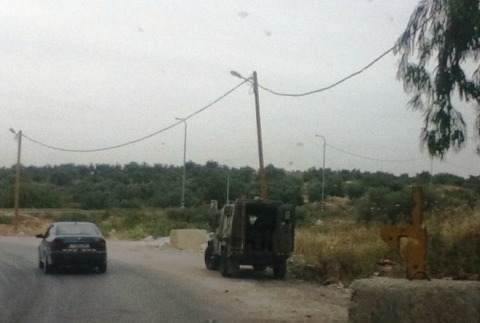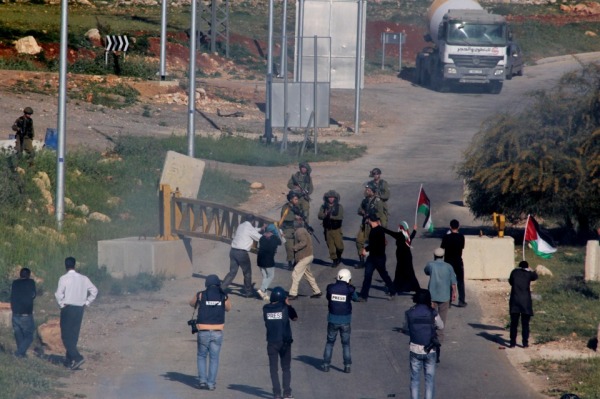Tag: Checkpoint
-
Photo story: Palestinians march in Tulkarem to defend their right of return
31th May 2014 | International Solidarity Movement, Nablus team | Tulkarem, Occupied Palestine On the morning of the 31st of May, several buses filled with Palestinian and international activists from across the West Bank gathered in Tulkarem to march towards the Natanya checkpoint, used only by the Israeli military forces. Political groups, Palestinian civil society and…
-
Israeli army target children in Azzun
7th May 2014 | International Women’s Peace Service | Azzun, Occupied Palestine If the people of ‘Azzun seem nervous, they have a right to be. The town (population approximately 10,000) sits on crossroads – Qalqiliya is to the west, Nablus to the east, Salfit to the south and Tulkarem to the north. This is a junction that is vulnerable…
-
Nabi Saleh successfully end three day siege of their village with peaceful protest
15th April 2014 | International Solidarity Movement, Ramallah Team | Nabi Saleh, Occupied Palestine Yesterday, The Palestinian Popular Resistance Committee of Nabi Saleh called for a demonstration at 3pm against a siege enforced on their village by Israeli forces. The demonstration was an overwhelming success with the re-opening of the checkpoint and a withdrawal of the additional forces…



